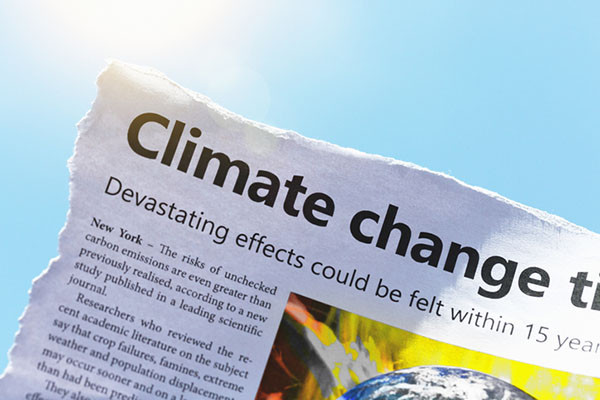Can plant-based diets lower your risk of prostate cancer?
Curbing nearsightedness in children: Can outdoor time help?
Holiday arguments brewing? Here’s how to defuse them
Aspirin and bone health: Is there a connection?
Don’t want to go to bed? Dealing with bedtime procrastination
Struggling with migraine hangovers? Read this
Does cannabis actually relieve pain — or is something else going on?
Jump-start a healthier New Year with four holiday eating tips
Sibling rivalry is normal — but is it helpful or harmful?
Prostate cancer: How long should hormonal therapy last?
Mind & Mood

A forest fire in northern California and a mile-long glacier breaking apart appear in your news feed. The stark reminders of climate change are constant, and may cause additional stress to your daily tasks. For example, in surveying your shopping cart filled with wipes, sandwich bags, and packets of baby food, you may question your choices, knowing that the plastic in those items will never break down completely. You may feel guilty about driving the short distance to the store, or you may struggle to stop worrying about how your actions will affect future generations.
Climate anxiety, or eco-anxiety, is distress related to worries about the effects of climate change. It is not a mental illness. Rather, it is anxiety rooted in uncertainty about the future and alerting us to the dangers of a changing climate. Climate change is a real threat, and therefore it's normal to experience worry and fear about the consequences. Anxiety about the climate is often accompanied by feelings of grief, anger, guilt, and shame, which in turn can affect mood, behavior, and thinking.
According to a survey by the American Psychological Association, more than two-thirds of Americans experience some climate anxiety. A study published by The Lancet found that 84% of children and young adults ages 16 to 25 are at least moderately worried about climate change, and 59% are very or extremely worried. This makes sense, as children and young adults will disproportionately suffer the consequences of environmental changes. A 2021 UNICEF report estimates that one billion children will be at "extremely high risk" as a result of climate change. Children and young adults are also particularly vulnerable to the effects of chronic stress, and climate anxiety may affect their risk of developing depression, anxiety, and substance use disorders.
In addition to existential worries and fears about the future, climate change can affect mental health directly (such as through natural disasters or heat) and indirectly (through displacement, migration, and food insecurity). Rising temperatures have been associated with increases in emergency department visits for psychiatric reasons, and may impair cognitive development in children and adolescents. Furthermore, food insecurity is associated with depression, anxiety, and behavioral problems.
As uncertainty and a loss of control characterize climate anxiety, the best treatment is to take action. On an individual level, it’s therapeutic to share your worries and fears with trusted friends, a therapist, or by joining a support group. You can also make changes to your lifestyle consistent with your values. This may include deciding to take fewer flights, joining a protest, or increasing public awareness about climate change through advocacy. Joining an organization like The Good Grief Network can help you process feelings related to climate anxiety and connect with others to take meaningful action.
Climate anxiety disproportionately affects children and youth. To be an ally for a child, adolescent, or younger adult with climate anxiety, you can consider showing your support in the following ways:
Climate anxiety is rife with uncertainty, but taking action may help you feel in control. Talk with others, join forces, and make lifestyle changes based on your values.
Stephanie Collier, MD, MPH, Contributor
As a service to our readers, Harvard Health Publishing provides access to our library of archived content. Please note the date of last review or update on all articles.
No content on this site, regardless of date, should ever be used as a substitute for direct medical advice from your doctor or other qualified clinician.
Mind & Mood
Mind & Mood
Mind & Mood
Get the latest in health news delivered to your inbox!
© 2022 by The President and Fellows of Harvard College
Do not sell my personal information | Privacy Policy
Thanks for visiting. Don’t miss your FREE gift.
The Best Diets for Cognitive Fitness, is yours absolutely FREE when you sign up to receive Health Alerts from Harvard Medical School
Sign up to get tips for living a healthy lifestyle, with ways to fight inflammation and improve cognitive health, plus the latest advances in preventative medicine, diet and exercise, pain relief, blood pressure and cholesterol management, and more.
Health Alerts from Harvard Medical School
Get helpful tips and guidance for everything from fighting inflammation to finding the best diets for weight loss…from exercises to build a stronger core to advice on treating cataracts. PLUS, the latest news on medical advances and breakthroughs from Harvard Medical School experts.
BONUS! Sign up now and
get a FREE copy of the
Best Diets for Cognitive Fitness
Stay on top of latest health news from Harvard Medical School.
Plus, get a FREE copy of the Best Diets for Cognitive Fitness.





